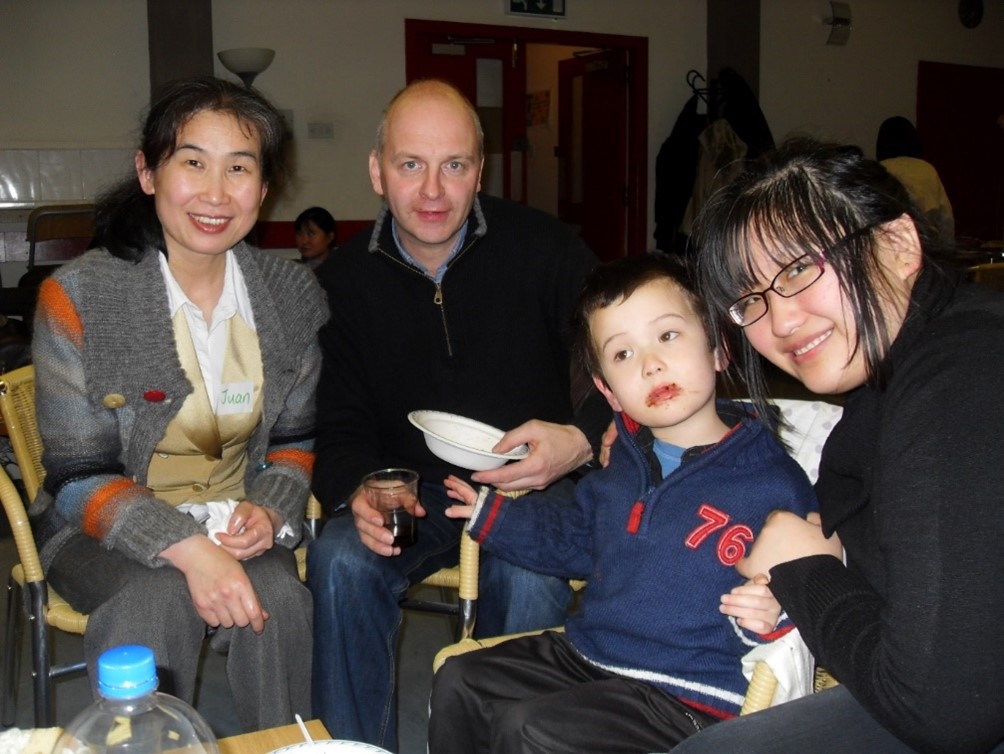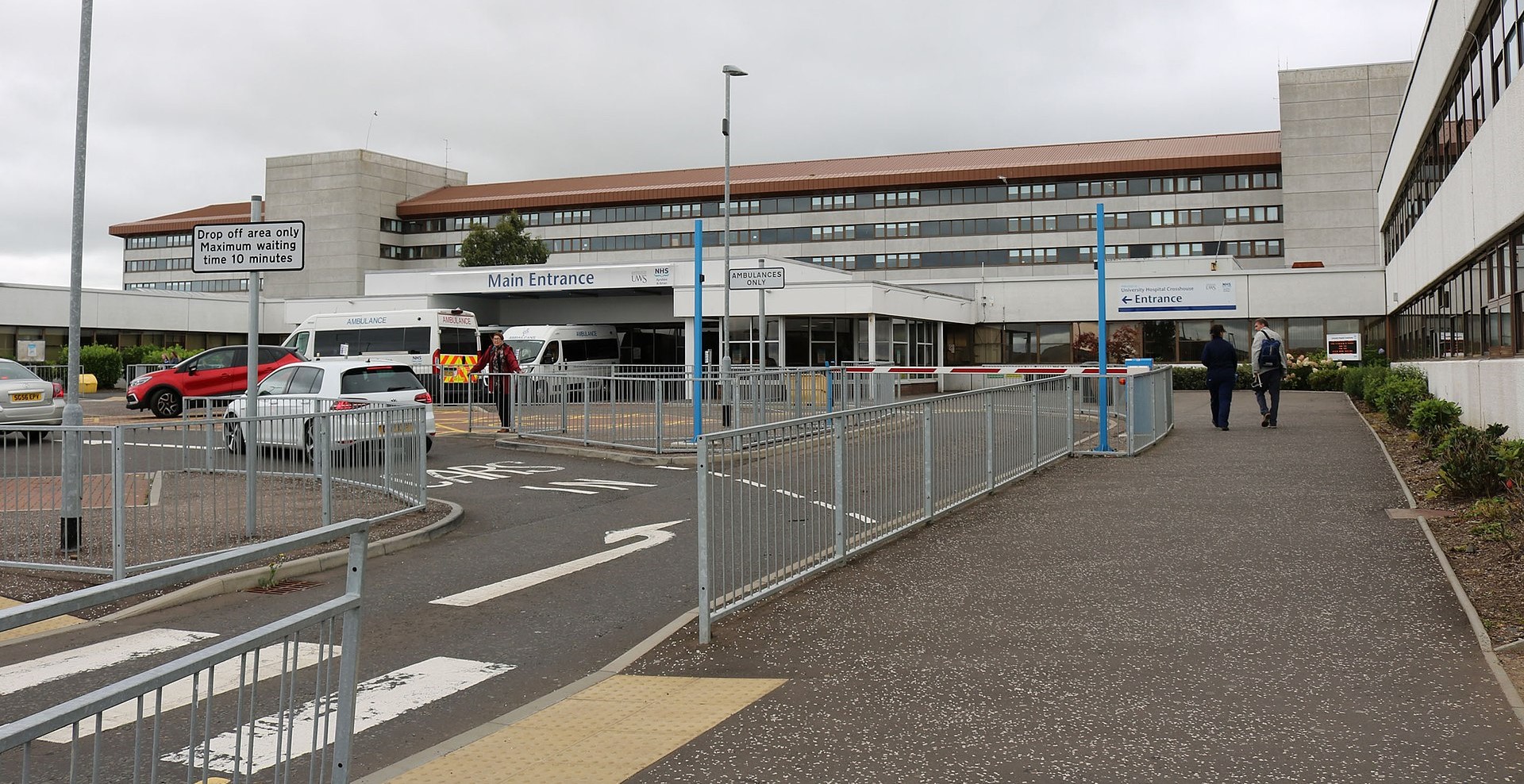Find out more about The Open University's History and Social Sciences qualifications.
This article belongs to the Women and Workplace Struggles: Scotland 1900-2022 collection.

Background
From its inception in 1948 the National Health Service (NHS) has been dependent on migrant labour. Following an NHS recruitment drive in Malaysian secondary schools, Sofi Taylor left Malaysia for Scotland in 1973 to train as a nurse. In Malaysia Sofi came from a wealthy family. Her only sister was training to be an accountant with a bright future, but as Sofi was less academic the opportunities available to her in Malaysia were limited to perhaps marriage. Scotland offered Sofi the chance to train in the nursing profession, with a new life, in a new country, with more opportunities. However, life in Scotland brought its own challenges. On a daily basis Sofi encountered racism in the NHS. This was seldom challenged by anyone, including the NHS as an institution. In Sofi’s case this manifested in people calling her ‘Suzi-Wong’. Sofi’s story makes a particularly good case study, because having succeeded in establishing a new life with a new family and a career in Scotland, she was intent on ensuring others were supported to do the same. In 2001 the NHS was again short of qualified staff and turned once more to migrant labour. Aware of the challenges they might face, Sofi was determined to make their experiences more positive.
A New Phase of NHS Migration, 2001
Although the NHS was still dependent on migration in 2001, recruitment processes had moved on. Whereas in the 1970s, Sofi was recruited directly by the NHS to train as a nurse, by 2000 the NHS required qualified nurses. However, recruitment of qualified staff from countries whose health services were less developed than the UK was now viewed as unethical, as it exacerbated worldwide health inequalities. The UK government had committed to an ethical recruitment code, and this required them to provide financial compensation to the country of origin, if they actively recruited their qualified staff. This code also included equal rights for migrant workers in terms of pay, training and professional development, which made recruiting from abroad very costly (Mackintosh, Raghuram and Henry 2006).
Many overseas nurses’ qualifications were not automatically recognised by the UK Nursing and Midwifery Council (NMC), meaning they had to undertake an adaptation course involving supervised practice, before the NMC would register them to practice in the UK. As the NHS in Scotland did not provide or fund such a programme, they could not, practically or ethically, recruit directly from abroad. This created a role for recruitment agencies in the international health market.
The Impact of Nursing Agencies
The reluctance of the UK to directly recruit overseas nurses did not change nurses’ desire to migrate to the UK in search of a better life. Recruitment agencies made migration possible. For a fee, they provided help with visas, work permits and assistance to find employment as care assistants in private nursing homes, who offered the adaptation course required by the NMC. The agencies also assisted them to find accommodation, offered loans to cover the cost of the first month’s rent and an advance on their first month’s wage. For many the loans and the pay advances were a necessity, as they had used their savings to cover the cost agency’s fees. Of course, this meant they were starting life in Scotland, in debt and as low-paid care assistants.
Exploitation
Instead of the bright new life nurses expected, they often found themselves in substandard, expensive accommodation unable to move until they had paid their debt to the agency. While they should have been able to complete their course and supervised practice in 6 months, many found this stretched to 2 years. During this time, these highly trained theatre nurses, intensive care nurses and midwives worked as care assistants. Care homes only provide basic nursing care: if specialist nursing care was needed, residents were admitted to hospital, and thus, the nurses became deskilled. They also had limited access to training and professional development, therefore, by the time they gained NMC registration and applied for nursing posts in the NHS, they only succeeded in securing entry level posts, in clinical areas that were not viewed as attractive or as requiring high levels of skills.
The Overseas Nurses Network (ONN)
In December 2002 Sofi Taylor, determined to make life easier for this new wave of migrants and supported by UNISON, set up the ONN and recruited overseas nurses to UNISON. The aim of ONN was to:
- help defend these nurses against exploitation
- organise information sessions with representatives from NMC and Ethnic Minority Law Centre who provided information on process of registration and immigration status
- provide representation or advice on employment issues. Despite Trade Union support this wasn’t always straightforward as often private sector employers did not recognise trade unions (UNISON Scotland, 2002).
-
More importantly, Sofi and the ONN provided an opportunity for much needed social contact and for nurses to share their experiences of life in Scotland. Sofi says: “A little bit of kindness, somewhere they could meet people with similar experiences, who could understand what they were going through and offer a listening ear” (Sofi Taylor, April 2021).

More Challenges
Sofi and the ONN continued for over a decade until it became too difficult to maintain. While UNISON provided support in the form of a grant to cover the cost of meeting rooms and hospitality, Sofi organised and ran the ONN in her own time. As a UNISON steward Sofi was entitled to facility time, time off work, to represent local members, but this did not extend to Sofi’s work for the ONN or her work as the Black Members Representative on the STUC or UNISON’s National Executive Council. As a result, Sofi spent almost all her annual leave on TU work, and eventually, exhausted and disheartened, she stepped back.
Concluding Reflections
The experience of immigrant nurses to the NHS in the 2000s was from the outset one of exploitation. They were exploited by recruitment agencies, the private sector and the NHS who failed to recognise their previous skills and experience. UNISON’s ONN did provide a degree of support but the trade union movement in the UK has developed support for migrants via self-organising groups/structures, through which they can address specific workplace issues. This model has had some success, but does not lend itself to supporting migrant workers with wider social and welfare issues e.g., housing.
As the NHS embarks on another wave of migrant recruitment, lessons can be learned from the industrial relations models in Europe, where some countries have a tripartite system. Through this unions, employers, and state work together and develop policies to avoid issues of racism and wider social welfare issues (Connolly, Marion, and Lucio, 2014).




Rate and Review
Rate this article
Review this article
Log into OpenLearn to leave reviews and join in the conversation.
Article reviews